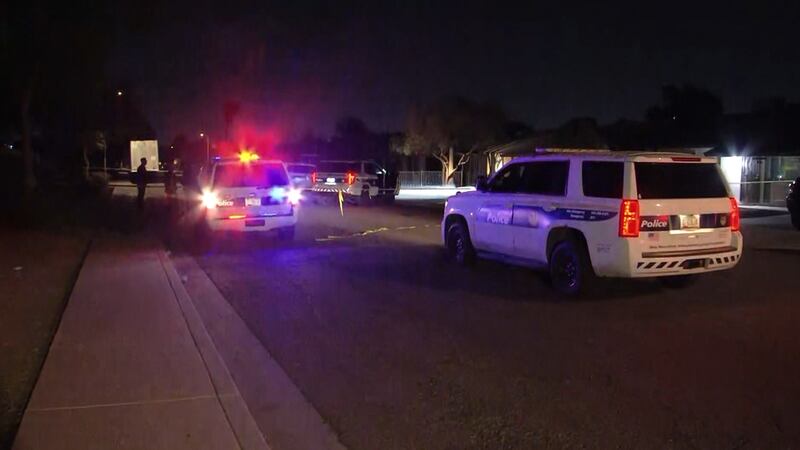Review shows misstatements and mischaracterizations in DOJ report of Phoenix PD
PHOENIX (AZFamily) —An Arizona’s Family Investigates review of the Department of Justice Investigation report into the Phoenix Police Department shows misstatements, errors in fact and events that were mischaracterized by DOJ investigators.
Critics argue that the report’s conclusions should be viewed with skepticism.
“It doesn’t give a fair assessment because if you start with bad facts, you’re going to get bad conclusions,” said Steve Serbalik, an attorney who represents police officers across Arizona.
The report follows a three-year investigation by the DOJ into Phoenix Police practices.
“Our findings today reveal very significant and severe violations of the federal law and the Constitution,” said Assistant Attorney General Kristen Clarke on June 13 after releasing the findings.
The DOJ concluded that Phoenix Police use excessive force, including unjustified deadly force and other types of force; unlawfully detain, cite and arrest people experiencing homelessness and unlawfully dispose of their belongings; discriminate against Black, Hispanic and Native American people when enforcing the law; violate the rights of people engaged in protected speech and expression; and discriminate against people with behavioral health disabilities when dispatching calls for assistance and responding to people in crisis.
But our review of the report’s facts raises questions about at least some of those conclusions.
Under the heading, which states, “PhxPD Retaliates Against Protesters by Using Indiscriminate Force,” the report states that the indiscriminate use of chemical gas, pepper spray or projectiles against protesters can cause serious injuries and deter political speech.”
The report includes a description of the demonstration in 2017 after a Donald Trump rally in downtown Phoenix. In her statement, Clarke said, “Officers unloaded tear gas on peaceful protesters.” The report stated that scores of peaceful demonstrators were forced to end their protest and leave the area.
But our reporters on the scene and the video our crews captured on the scene showed protesters throwing water bottles and tear gas canisters at police. Court documents indicate other protesters were throwing rocks.
“All the DOJ findings letter is are the personal opinions of some unnamed attorneys and experts who have no first-hand knowledge of what happened,” said Bob Scales, who is a former official with the city of Seattle. Scales worked in the city attorney’s office and represented Seattle during a DOJ investigation into that city’s police department.
“They don’t have to provide any evidence because they’re not in court. They’re just releasing some letter to the public about what they think about Phoenix PD,” said Scales.
The report criticizes Phoenix Police for their interactions with the homeless population.
On page 5, the report states, “Between 2016 and 2022, 37 percent of all PhxPD arrests were of people experiencing homelessness.” Then, on page 43, it states that the 37 percent figure applies only to misdemeanor arrests and citations.
The report points out that it is not a crime to sit or sleep on the sidewalk in the city of Phoenix. It criticizes police for waking up and harassing homeless people. However, the real-life example it offers is a homeless man who complains about being woken up while sleeping in a closed city park near a canal. Those areas are closed, and people who enter them are legally subject to trespassing citations or arrest.
We also found questions about quotes that DOJ officials used in the report.
The report states, “...when we asked the PhxPD commander in charge of the shelter and street squads whether PhxPD had reconsidered the practice of waking people up, he told us, “We’re still going to wake people to arrest them.”
But according to a transcript from a recording of that interview, obtained by Arizona’s Family Investigates, the actual quote was, “...if an individual is trespassing, some, there are times, yeah, we’re going to wake people up if they’re trespassing. You know, if they’re sleeping on private property. Um, we’re still going to address that as a crime.”
Serbalik says seemingly small details like those do add up, and they do matter.
“If the public is going to want to evaluate and participate in holding the police department accountable, which is something that we value, they need to have the facts correct, and those examples that you gave and dozens more show that the report has conclusions that aren’t supported by facts,” said Serbalik.
See a spelling or grammatical error in our story? Please click here to report it.
Do you have a photo or video of a breaking news story? Send it to us here with a brief description.
Do you have a story you want us to investigate? Tell us about it by contacting us.
Copyright 2024 KTVK/KPHO. All rights reserved.










